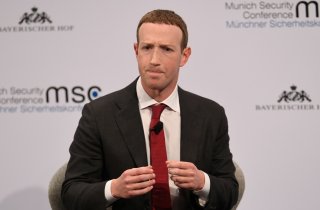Did the FBI Tell Facebook to Kill the Hunter Biden Laptop Story?
What exactly happened with the story remains somewhat mysterious to this day.
It’s been one of the more controversial aspects of the 2020 election: The time that the New York Post reported that a laptop, purportedly owned by then-candidate Joe Biden's son Hunter, had been dropped off and abandoned at a computer shop in Delaware.
Social media sites such as Twitter and Facebook, citing the possibility that foreign intelligence was behind the story, suppressed links to the Post story at the time.
What exactly happened with the story remains somewhat mysterious to this day; in March of 2021, the Office of the Director of National Intelligence put out a report laying out the Intelligence Community’s assessment of attempts at foreign interference in the 2020 election by various countries, which stated in part that “Russian state media, trolls and online proxies, including those directed by Russian intelligence, published disparaging content about President Biden, his family, and the Democratic Party, and heavily amplified related content circulating in U.S. media, including stories centered on his son.”
That brings us to last week, when Mark Zuckerberg, the founder, and CEO of Facebook parent company Meta, appeared on “The Joe Rogan Experience.” When asked about the laptop affair, Zuckerberg said that the FBI had approached Facebook and told them to be on guard about polarizing content.
"We just kind of thought, 'Hey look, if the FBI—which I still view as a legitimate institution in this country, it's very professional law enforcement—they come to us and tell us we need to be on guard about something, then I want to take that seriously," Zuckerberg said in the interview, per Insider.
"'We have it on notice that there is about to be some kind of dump that's similar to that, so just be vigilant,’" was how Zuckerberg characterized the FBI warning.
Meta also said in a subsequent social post that “nothing about the Hunter Biden laptop story is new,” and that Zuckerberg had said similar things before, including in meetings with U.S. senators back in 2020.
The FBI said in a statement to the media that the bureau “routinely notifies U.S. private sector entities, including social media providers, of potential threat information so that they can decide how to better defend against threats."
It is not true, however, that Zuckerberg admitted that the FBI, or any other government entity, had specifically ordered Facebook to suppress or censor the Hunter Biden laptop story. If that had happened, it would raise major First Amendment concerns. But it’s not, however, what happened. Nor does the FBI have the power to force a social media entity to remove or suppress content.
Stephen Silver, a technology writer for The National Interest, is a journalist, essayist and film critic, who is also a contributor to The Philadelphia Inquirer, Philly Voice, Philadelphia Weekly, the Jewish Telegraphic Agency, Living Life Fearless, Backstage magazine, Broad Street Review and Splice Today. The co-founder of the Philadelphia Film Critics Circle, Stephen lives in suburban Philadelphia with his wife and two sons. Follow him on Twitter at @StephenSilver.
Image: Reuters.

